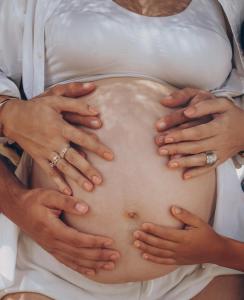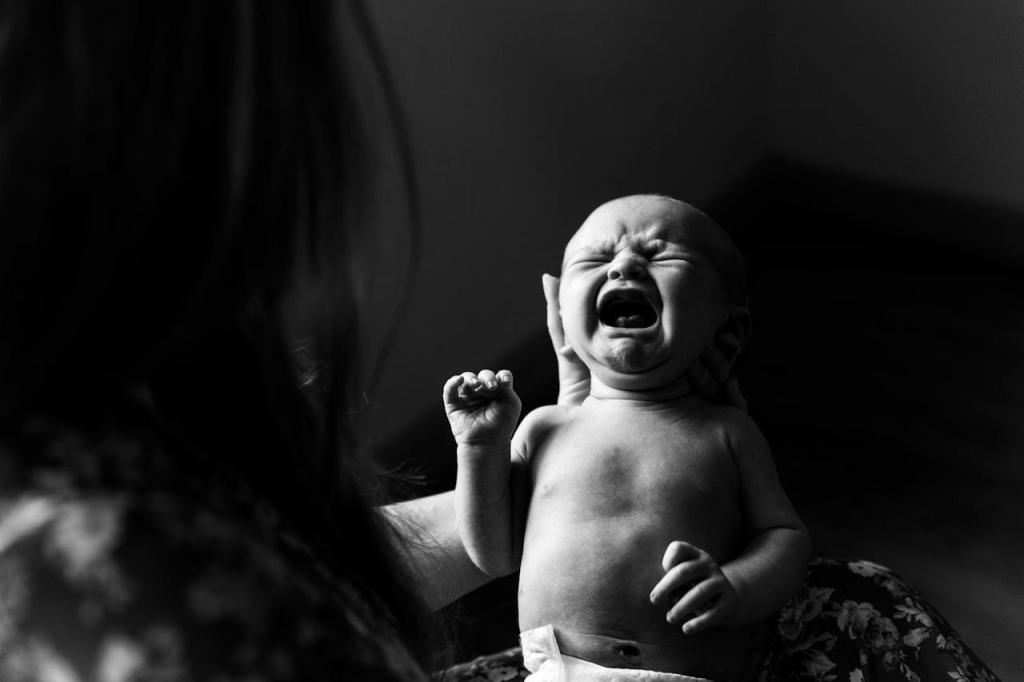On Monday, 8 January 2024, in his “state of the world” address where he addressed Vatican-accredited diplomats, Pope Francis called for the global ban of surrogacy calling it “deplorable”. For couples who struggling with infertility, they probably felt as if the Church does not see or feel their pain. However, that is not the case – as a Mother, the Church does recognize the pain of these couples.

The Church empathizes with the couples in the Catechism of the Catholic Church, no. 2374,
“Couples who discover that they are sterile suffer greatly.” What will you give me,” asks Abraham of God, “for I continue childless?” And Rachel cries to her husband Jacob, “Give me children, or I shall die!””
The Church also recognizes the pain in the 2008 instruction by the Congregation for the Doctrine of the Faith, Dignitas Personae,
“16. The Church recognizes the legitimacy of the desire for a child and understands the suffering of couples struggling with problems of fertility. Such a desire, however, should not override the dignity of every human life to the point of absolute supremacy. The desire for a child cannot justify the “production” of offspring, just as the desire not to have a child cannot justify the abandonment or destruction of a child once he or she has been conceived.”
In recognizing such pain, the Church also encourages ethical research that aims to prevent and treat infertility in the Catechism of the Catholic Church, no. 2375,
“Research aimed at reducing human sterility is to be encouraged, on condition that it is placed “at the service of the human person, of his inalienable rights, and his true and integral good according to the design and will of God.””
The Catholic Church teaches that human life is sacred and begins at conception. Surrogacy, particularly gestational surrogacy where the surrogate is not genetically related to the child she carries, raises concerns regarding the commodification of human life and the potential for the exploitation of women’s bodies. The Church opposes any practice that treats human life as a product to be bought, sold, or traded.

The Church also puts emphasizes on the importance of the family as the fundamental unit of society. Surrogacy can disrupt the natural bonds between parents and children, as it introduces a third party into the familial relationship. The Church holds that children have a right to be conceived, born, and raised within the context of a loving marital union between a man and a woman. Surrogacy arrangements often involve the separation of biological, gestational, and social parenthood, which can lead to confusion and emotional strain for all involved parties, particularly the child.
Moreover, the Catholic Church is concerned about the potential exploitation of women who serve as surrogates. The financial incentives associated with surrogacy arrangements may coerce economically vulnerable women into becoming surrogates, exploiting their bodies for financial gain. This exploitation is contrary to the Church’s teachings on the dignity of the human person and the need to uphold the rights and well-being of all individuals, especially the most vulnerable. One other reason the Catholic Church is not in support of surrogacy is the dark world of surrogacy in countries such as China.
The Underworld
China’s restrictive family planning policies, combined with a growing demand for children among affluent couples, have fueled the rise of surrogacy in the country. With limited options for adoption and a cultural emphasis on biological offspring, many couples turn to surrogacy as a solution to their fertility struggles. Additionally, the increasing prevalence of delayed childbirth due to career pursuits or other factors has contributed to the demand for surrogacy services.
While surrogacy is technically illegal in China, the practice thrives in the shadows of the black market. Underground agencies and brokers operate with impunity, exploiting vulnerable women and engaging in unethical practices. These black market operations often involve coercion, deception, and the exploitation of impoverished women who serve as surrogate mothers. In many cases, these women are lured by promises of substantial compensation, only to be subjected to harsh treatment and inadequate healthcare during pregnancy.

One of the most troubling aspects of China’s surrogacy black market is the exploitation of surrogate mothers. Many of these women come from rural areas and have limited education and economic opportunities. Agents who promise lucrative payments often coerce them into becoming surrogates. However, once they enter into agreements, they find themselves in dire situations, with little control over their bodies and their rights disregarded. Moreover, the lack of legal protections leaves them vulnerable to abuse and exploitation by both agencies and intended parents.

The legal and ethical implications of China’s surrogacy black market are profound. The absence of clear regulations allows unscrupulous actors to operate with impunity, leading to widespread abuses. Furthermore, the commodification of women’s bodies and the commercialization of childbirth raise fundamental questions about human dignity and reproductive rights. The lack of oversight and accountability further exacerbates these concerns, leaving surrogate mothers and intended parents alike vulnerable to exploitation and harm.
In light of these concerns, the Catholic Church does not support surrogacy as a morally acceptable means of conceiving children. Instead, it advocates for alternative approaches to infertility that respect the dignity of all persons involved. These alternatives may include adoption, which provides loving homes to children in need, as well as medical interventions that work to address the underlying causes of infertility while upholding the sanctity of human life.













